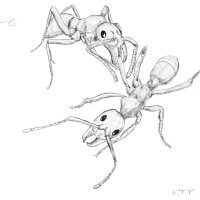
Erik Frank
@ETF1989
Emmy Noether Group Leader at @Uni_Wue 🇩🇪 studying the Evolution of Social Wound Care in Ants 🐜 🚑 Mastodon account: @[email protected]
ID:800335747240734720
http://www.antcare.eu 20-11-2016 13:51:26
209 Tweets
684 Followers
420 Following
Follow People



Happy to see that our publication led by Joanito Liberti made it to the cover 🐝 🥳 and congrats to Bart Zijlstra for that great picture












